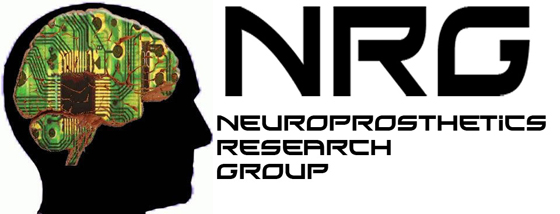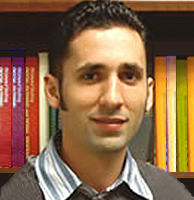Dr. Justin C. Sanchez
The ScienceDaily article The Future Of Medicine: Insert Chip, Cure Disease? said
“Imagine a chip, strategically placed in the brain, that could prevent epileptic seizures or allow someone who has lost a limb to control an artificial arm just by thinking about it.It may sound like science fiction, but University of Florida researchers are developing devices that can interpret signals in the brain and stimulate neurons to perform correctly, advances that might someday make it possible for a tiny computer to fix diseases or even allow a paralyzed person to control a prosthetic device with his thoughts.
The initial goal? To correct conditions such as paralysis or epilepsy.
‘We really feel like if we can do this, we’ll have the technology to offer new options for patients,’ said Justin Sanchez, Ph.D., director of the UF Neuroprosthetics Research Group and an assistant professor of pediatric neurology, neuroscience and biomedical engineering. ‘There’s kind of a revolution going on right now in the neurosciences and biomedical engineering. People are trying to take engineering approaches for directly interfacing with the brain.
‘The hope is we can cure more immediately a variety of diseases.’”
Justin C. Sanchez, Ph.D. is Director of the UF Neuroprosthetics Research Group and Assistant Professor of Pediatrics, Neuroscience, and Biomedical Engineering at the University of Florida College of Medicine, Engineering, and McKnight Brain Institute in Gainesville, Florida. His research interests are in Neural Engineering and neural assistive technologies. Topics include the analysis of neural ensemble recordings, adaptive signal processing, Brain-Machine Interfaces, motor system electrophysiology, treatment of movement disorders, and the neurophysiology of epilepsy.
Justin earned his Ph.D. (2004) and M.E. degrees in Biomedical Engineering and B.S. degree in Engineering Science (Highest Honors – 2000) with a minor in Biomechanics from the University of Florida. The goal of his research is to develop state-of-the-art novel medical treatments by operating at the interface between basic neural engineering research and clinical care. This direction of research is motivated by the potential of direct neural interfaces for delivering therapy and restoring functionality to disabled individuals using engineering principles.
In 2005 Justin won two prestigious awards for his work including Excellence in Neuroengineering and more recently an American Epilepsy Society Young Investigator Award. In 2006 he founded the Gainesville Engineering in Medicine and Biology/Communications Joint Societies Chapter and serves as the IEEE Gainesville Section Director for membership development. His neural engineering electrophysiology laboratory is currently developing direct neural interfaces for use in the research and clinical settings and has published over 35 peer review papers and holds 3 patents in neuroprosthetic design. He is the founding member of the Neuroprosthetics Group (NRG) at the University of Florida.

He coauthored
Brain-Machine Interaction (Synthesis Lectures on Biomedical
Engineering),
Optimal Signal Processing for Brain-Machine Interfaces,
Extraction and localization of mesoscopic motor control
signals for human ECoG neuroprosthetics,
Structural modifications in chronic microwire electrodes for
cortical
neuroprosthetics: a case study,
Deep Brain Stimulation of the Internal Segment of the Globus
Pallidus
in Delayed Runaway Dyskinesia,
Evolving into epilepsy: Multiscale electrophysiological
analysis and imaging in an animal model,
Interpreting Spatial and Temporal Neural Activity through a
Recurrent
Neural Network Brain Machine Interface, and
Self-organizing maps with dynamic learning for signal
reconstruction.
Read his LinkedIn profile.
